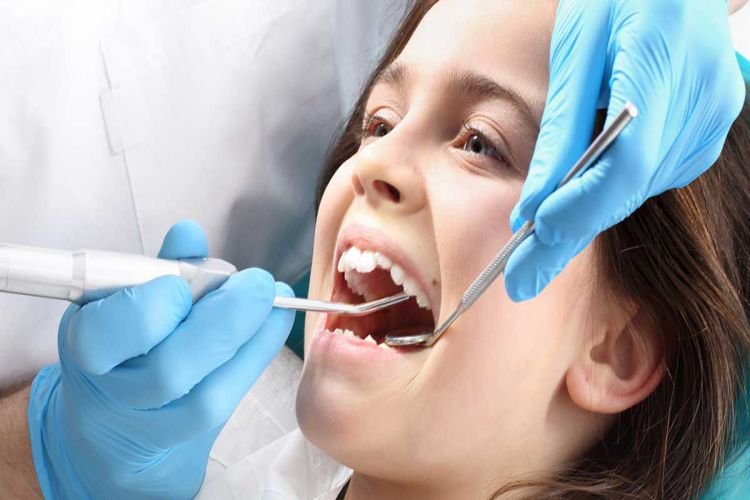 Our thorough guide to extraction in Brisbane is all you need to refer to if you require a wisdom tooth extraction. We will outline the different techniques and tools we use and provide detailed information on each of the local clinics that offer this service. So why wait? Contact us today to find out more! Check out https://moorookadentalcare.com.au/wisdom-teeth-removal-brisbane/
Our thorough guide to extraction in Brisbane is all you need to refer to if you require a wisdom tooth extraction. We will outline the different techniques and tools we use and provide detailed information on each of the local clinics that offer this service. So why wait? Contact us today to find out more! Check out https://moorookadentalcare.com.au/wisdom-teeth-removal-brisbane/
today to learn more!
What Are Wisdom Teeth?
Wisdom teeth are teeth that don’t come in until after a person is eighteen years old. They are located at the back of the mouth on either side of the jawbone. Usually, three wisdom teeth grow at one time. They can become troublesome If they come in too early or if they grow out of abnormal positions. There are numerous treatments available to address issues brought on by wisdom teeth. Depending on the case, removing one or all of the teeth may be necessary. In some cases, a brace or other dental device may be necessary to maintain the stability of the jawbone and keep the teeth in place.
What Steps Comprise the Wisdom Tooth Extraction Process?
A wisdom tooth extraction is a procedure that is performed by a maxillofacial surgeon, dental care provider, or another qualified medical professional. The purpose of this procedure is to remove one or more wisdom teeth that are causing problems for the patient. The third and final pair of molars that most people develop are called wisdom teeth. Usually, they are discovered between the ages of 17 and 25.
There are a few reasons someone may need to have their wisdom teeth extracted. One reason is that there is not enough room in the mouth for wisdom teeth. When this happens, the wisdom teeth can become impacted, meaning they cannot fully erupt. This can cause pain, crowding, and damage to the adjacent teeth.
Another reason to have wisdom teeth extracted is if they are decayed or infected. Infected wisdom teeth can cause abscesses, which can be very painful. They can also cause damage to the surrounding teeth.
The procedure for wisdom tooth extraction is typically performed under local anesthesia. This means that you will be awake during the procedure, but you will not feel any pain. To reveal the wisdom tooth, the oral surgeon will make an incision in the gum tissue. The tooth will then be removed using a drill.
After the wisdom tooth extraction surgery has been removed, the area will be sutured closed. You will likely experience some swelling and pain after the procedure, but this can be controlled with pain medication; following the oral surgeon’s instructions for care after the procedure is essential to ensure proper healing.
What are the risks of getting your wisdom teeth out?
Although removing wisdom teeth is a common dental procedure, there are risks involved. What you should know about the possible side effects of wisdom tooth removal is provided below.
The third and final pair of molars that most people develop in their late teens or early twenties are called wisdom teeth. For some people, these teeth come in without any problems. But for others, wisdom teeth can crowd or damage other teeth, cause pain, or become infected.
If your wisdom teeth are causing problems, your dentist may recommend removing them. Wisdom teeth removal is a standard procedure, but it’s not without risks.
Pain is the most frequent side effect of wisdom tooth removal. This is usually mild and can be managed with over-the-counter painkillers. However, some people experience more severe pain, swelling, and bruising.
Other potential complications include:
- Infection: Infection is a rare but severe complication of wisdom teeth removal. Fever, swell- ing, redness, and pus are indications of infection. Antibiotics are required if you have an infection in order to treat it.
- Nerve damage: In rare cases, wisdom teeth removal can damage the nerves in your jaw. This can cause numbness, tingling, or pain in your lips, tongue, or chin.
- Bleeding: You may have some bleeding after wisdom teeth removal. This is usually minor and stops within a few days. However, you should see your qualified health practitioner if you have heavy bleeding that lasts longer than a few days.
- Dry socket: This complication can occur when the blood clot forms in the socket after wisdom teeth removal dissolves. A dry socket can cause pain, bad breath, and an unpleasant taste in your mouth.
Talk to your experienced dentist about the risks and benefits if you’re considering wisdom teeth removal. Wisdom teeth removal is a common and generally safe procedure, but it’s not without risks. Be sure to ask your dentist about the potential complications and how they can be managed.
How Much Does It Cost To Remove Wisdom Teeth In Brisbane?
If you are looking for a way to improve your oral health and remove wisdom teeth, the cost of treatment will vary depending on where you live. In Brisbane, wisdom teeth removal can typically cost between $2,000 and $3,000. Some dental procedures, such as Wisdom Tooth Extraction with Implant or Implants and advanced tooth removal techniques, can cost even more.
Wisdom Teeth Removal Recovery Tips
Wisdom tooth extraction is a type of impaction and is common oral surgery procedure. The recovery process is usually pretty straightforward, but you can do a few things to make it go as smoothly as possible. Here are a few wisdom teeth removal faster recovery tips:
- Take it easy for the first few days – You’ll probably feel pretty sore after your surgery, so taking it easy and giving your body time to recover is important. Avoid strenuous activity and stick to soft foods for the first few days.
- Keep your mouth clean – It’s essential to keep your mouth clean after wisdom teeth removal to avoid infection. Gently brush your teeth and rinse with salt water several times a day.
- Ice packs can help reduce swelling and pain after the wisdom teeth removal procedure. Apply ice packs to your face for 20 minutes several times a day.
- Take pain medication as needed – You’ll likely be prescribed pain medication to help with the discomfort after wisdom tooth surgery. Please take it as needed, but be sure not to overdo it.
- Avoid smoking – Smoking can delay healing process and increase the risk of complications after the removal of wisdom tooth. If you smoke, you should quit at least a week before your wisdom teeth surgery.
These tips can help you recover quickly and safely after wisdom teeth removal. If you have any questions or any wisdom teeth concerns, talk to your oral surgeon. Visit www.healthdirect.gov.au for more info.
How much does it cost to get your wisdom teeth out in Brisbane?
This is a difficult question without more information, such as which dentist you are considering and what treatment plan they propose. From what you have said, it sounds like you would be having two of your wisdom teeth removed simultaneously. A treatment option like this could range in cost from around $1500 up to $4000+.
Does Medicare cover wisdom teeth removal?
No, wisdom teeth removal is not covered by Medicare.
What are the donts to wisdom tooth removal?
Some don’ts to wisdom tooth removal include:
- Not eating hard foods or crunchy snacks for two days before the surgical removal procedure.
- Not drinking sports drinks, energy drinks, or any other type of alcoholic beverage for the same period.
- Abstaining from smoking during the entire process.
How much do wisdom teeth cost to remove in Australia?
Overall, wisdom teeth removal costs typically range from A$1,000 to A$5,000, depending on a person’s location and insurance coverage.
How long does a wisdom tooth extraction take?
A wisdom tooth extraction typically takes around one hour.
Is extraction of wisdom tooth pain?
The extraction of wisdom teeth is not always painful but varies depending on the person. There may be mild discomfort in some cases, while in others, the pain may be more severe.
Wisdom tooth extraction is a common dental procedure. However, some people experience anxiety about having their wisdom teeth removed. Dental sedation can help people relax during the procedure.
Conclusion
Wisdom tooth extraction is a common procedure that oral surgeons perform to remove wisdom teeth. The third molars known as wisdom teeth emerge from the back of the mouth. They are usually not required because they are the last teeth to erupt. Most people have their wisdom teeth removed because they are impacted, meaning they are growing in at an angle and are pressing against the adjacent teeth. Wisdom teeth can also cause crowding and can be difficult to clean.
Wisdom teeth impaction can hurt, infect, and harm neighboring teeth. Untreated wisdom teeth can cause shifting of the teeth as well as difficulties chewing.
The decision to remove wisdom teeth is a personal one and should be made after consulting with an oral surgeon. The dental surgeon dental service will examine the teeth and take X-rays to determine if the wisdom teeth need to be removed.
Wisdom tooth extraction is a safe and common procedure. The oral surgeon will numb the area and remove the teeth. The recovery is usually quick and easy. Most people can return to their normal activities the next day.




